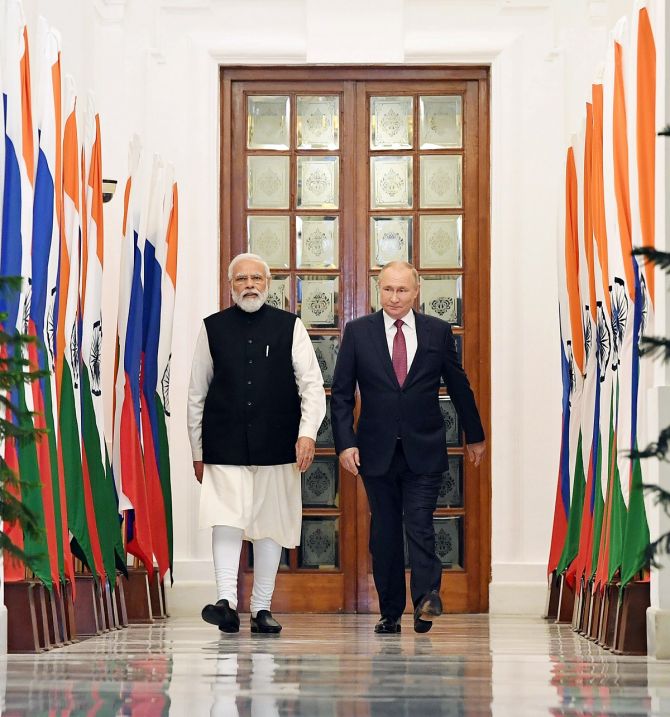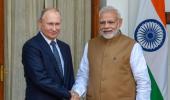Russia on Friday described India and China as "friendly sovereign global centres of power" and vowed to give particular importance to comprehensive deepening of ties and enhancement of coordination with them.

Unveiling its new concept of foreign policy, approved by President Vladimir Putin, Moscow also asserted that its attitude towards other countries and multilateral bodies is contingent on the constructive, neutral or unfriendly character of their policies with respect to it.
Russia also said it places special emphasis on increasing the volume of bilateral trade with India, strengthening investment and technological ties, and ensuring resistance to destructive actions of "unfriendly states and their alliances".
In the document, Russia underlined that it will build on a privileged strategic partnership with India with a view to enhance and expand cooperation in all areas on a mutually beneficial basis.
"A comprehensive deepening of ties and enhancement of coordination with friendly sovereign global centres of power and development, which are located on the Eurasian continent and committed to approaches which coincide in principle with the Russian approaches to a future world order and solutions for key problems of the world politics, is particularly important for achieving strategic goals and major objectives of the foreign policy of the Russian Federation," the policy statement said in its sub-section on China and India.
Russia aims at further strengthening the comprehensive partnership and the strategic cooperation with China and focuses on the development of a mutually beneficial cooperation in all areas as well as enhancement of coordination in the international arena to ensure security, stability and sustainable development at the global and regional levels, both in Eurasia and in other parts of the world, said the policy document titled The Concept of the Foreign Policy of the Russian Federation.
It said it seeks to transform Eurasia into a continental common space of peace, stability, mutual trust, development and prosperity.
Achieving this goal implies comprehensive strengthening of the Shanghai Cooperation Organization's potential and role in ensuring security in Eurasia and promoting its sustainable development by enhancing the organisation's activities in the light of current geopolitical realities, the document said.
The goal also implies establishment of the broad Greater Eurasian Partnership integration contour by combining the potential of all the states, regional organisations and Eurasian associations, based on the EAEU, the SCO and the Association of Southeast Asian Nations, as well as the conjunction of the Eurasian Economic Union development plans and the Chinese initiative "One Belt One Road".
Russia also called for strengthening the economic and transport inter-connectivity in Eurasia, including through modernisation.
It also sought a comprehensive settlement in Afghanistan, assistance in building it as a sovereign, peaceful and neutral state with stable economy and political system which meets the interests of all the ethnic groups living there and opens up prospects for integrating Afghanistan into the Eurasian space for cooperation.
In the document, Moscow also sought enhancing the capacity and international role of the interstate association of BRICS, the SCO, the Commonwealth of Independent States, the Eurasian Economic Union, the Collective Security Treaty Organisation, the RIC (Russia, India, China) and other interstate associations and international organisations.










